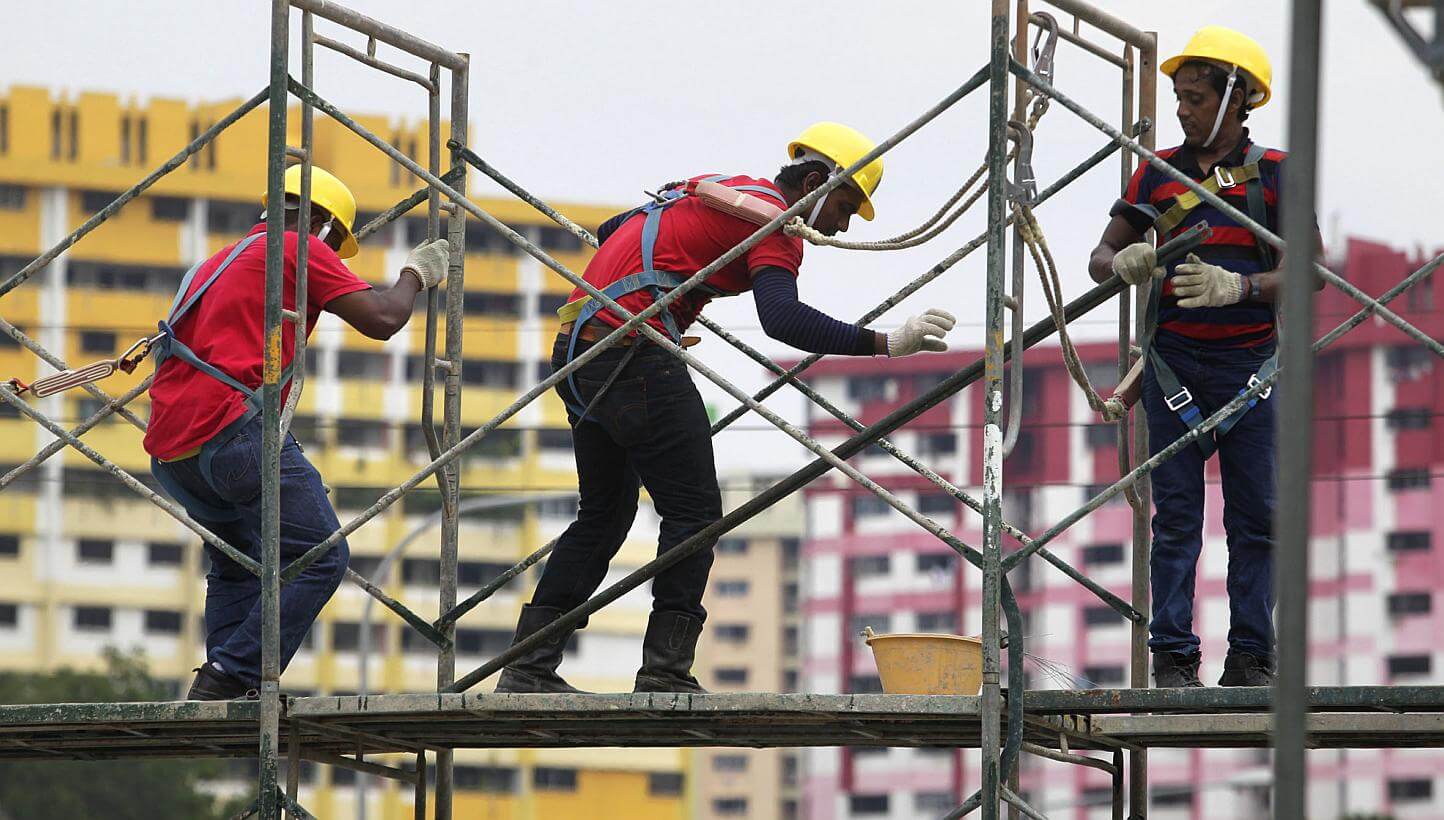According to Singapore’s 2021 budget that was passed on February 16, the country will start reducing the quota of foreign workers in the country’s manufacturing sector over the next two years. Deputy Prime Minister Heng Swee Keat announced in his Budget speech that by January 2022, Singapore will reduce S-Pass quotas for foreign workers in the manufacturing sector from 20% to 18%. This will further be slashed to 15% in January 2023.
The S Pass, which is a short-term employment pass, allows mid-level skilled foreigners to work in Singapore, provided they earn a fixed monthly salary of at least $2,500. Holders of this pass are typically workers with degrees or diplomas, such as technicians, whose median wages are about 10% higher than the economic average. Until June 2020, according to government records, Singapore had 188,800 S-Pass holders. The country’s manufacturing sector, the sector that the budget cut focuses on, employs around 450,000 workers, who collectively make up 12% of the total workforce. Therefore, this loss of foreign talent heralds the transition of one of the most robust sectors of the Singaporean economy.
Simultaneously, the government will shift its focus to the employment of Singaporeans and the development of their capabilities, while also promoting the transfer of capabilities from foreigners to locals, through the Capability Transfer Programme which has now been extended up till September 2024. The program provides up to 90% funding for companies or projects to bring foreign specialists to train locals or send local Singaporean workers for overseas training in areas where Singapore lacks expertise.
In this regard, Heng said in his speech that “The way forward is neither to have few or no foreign workers nor to have a big inflow. We have to accept what this little island can accommodate… To strike a balance, we must focus on enhancing the complementarity of local and foreign manpower, and step up on industry transformation.”
In addition, the new budget also makes allowances for Singapore to spend S$24 billion over the next three years to aid firms and workers in adapting to the changing economic landscape brought on in part by the pandemic. These funds will be dedicated to building a more robust business and innovation sector and to helping firms scale up their operations.
Although the end goal is reduced dependence, some leeway has been offered by the government to companies and workers. When the restrictions come into effect, companies will not be required to let go of their additional foreign workers immediately. They will be allowed to retain foreign workers until the expiration of their individual S-Passes, giving firms time to meet their new employment quotas.
The move is part of the government’s efforts to reduce the country’s reliance on foreign labour, particularly as the unemployment rate jumped to 4.1% in 2020, from 2.3% in 2019. It is predicted that the current level could have also reached 6.1 % if stringent fiscal and monetary policies had not been issued throughout that year. The latest announcement is a step further in the country’s efforts to revive its domestic economy and employment levels.
Singapore’s 2021 Budget Slashes Foreign Worker Quota
According to Singapore’s new budget, the country will reduce its foreign worker quota in the manufacturing sector over the next two years.
March 10, 2021

SOURCE: FILE PHOTO; LAU FOOK KONG
